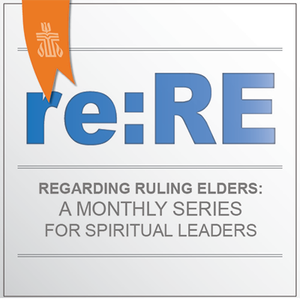Throughout my ministry, I have worked with multiple ruling elders and congregations in the area of stewardship. I am frequently asked by these elders to assist them by providing programming, calendar planning, and other related suggestions to rejuvenate their stewardship programs. I usually address these requests by immediately delivering a bit of bad news—redefining stewardship for a congregation typically does not occur overnight. In fact, it can take much longer—often weeks or months—to fully re-envision stewardship. Why? Perhaps because most of us have taken the term “stewardship” and overused/misused the term so significantly that it takes a proverbial journey to think of it in a new and exciting way. In this new mind frame, Psalm 23 can be the basis to outline a couple of key components of what this journey may look like.
Break the ties of fear and scarcity
Note the tense of Psalm 23. The Lord is my shepherd. I shall not want. He leads. He prepares. These are all words that speak of a present-tense God, a God of the here and now. While this sounds obvious, many of us tend to worship and remember the “God of the good old days.” This nostalgic lens often carries over into our stewardship efforts. We remember the days when our finances were “running over” (pun intended) and we didn’t really need to talk about stewardship. Folks just came to church regularly and gave. That’s just how it was. If we are not careful, these sentiments of yesteryear can cause us to become a bit downtrodden, perhaps even a bit bitter, about our current state. God didn’t just live back then, however. To the contrary, God is an ever-present God, very much with us now. Sure, times have changed. God has not. God is still our shepherd, supplying our needs.
Trust in the Good Shepherd
Psalm 23 uses the familiar lens of “shepherding,” a metaphor that can be found throughout the Bible. In John 10:11–15, we are reminded that our savior is “the good shepherd,” the shepherd that lays down His life for His own sheep. Connecting Psalm 23 and John 10, one could surmise that these passages reveal to us the ultimate act of caring. How might this understanding of such a compassionate, caring God impact the way we live and cope with life’s joys and sorrows? From a stewardship perspective, this could make us more obedient.
Follow the shepherd’s leading
Often, we can become locked into the ways we’ve always done things for years, even if they stopped working long ago. The aforementioned nostalgic lens can sometimes tempt us to get stuck in decade-old stewardship programming patterns, reluctant to try something new. Yet, God leads us to new things every day. Obedience to the Spirit of where God is leading our members, program, and ministries currently, not historically, is at the root of stewardship. Our members give to support mission. Our members give to support ministry. Our members don’t give to just keep the lights on or cut the grass. Balanced budgets are a byproduct of a stewardship program, not the impetus to create one. Therefore, we would do well to focus our stewardship efforts more around ministry and less around financial needs. Sound a bit scary? Don’t be frightened! Remember, the good shepherd is leading, protecting, and comforting us all along the way.
It is probably helpful for us to note what Psalm 23 does not say. Psalm 23 does not say that “the Lord WAS my shepherd. I didn’t want back then, but I sure do now.” Quite the contrary! The reassuring words of this passage are meant to comfort us, to ease our anxious spirits when a scarcity mentality emerges. A scarcity mentality leads us to think that there’s never enough, that our best days are behind us. It tempts us to store treasures for rainy days in spite of forecasts of sun. Yet, we must be bold to defeat such pessimism, embracing that the God of yesterday is still our God of today and will be our God of tomorrow.
Olanda Carr Jr. is a ruling elder at First United Presbyterian Church in Charlotte, North Carolina. He works with the Presbyterian Foundation as the Ministry Relations Officer (MRO) serving the East Region and resides in Harrisburg, North Carolina, with his wife, Monica.

